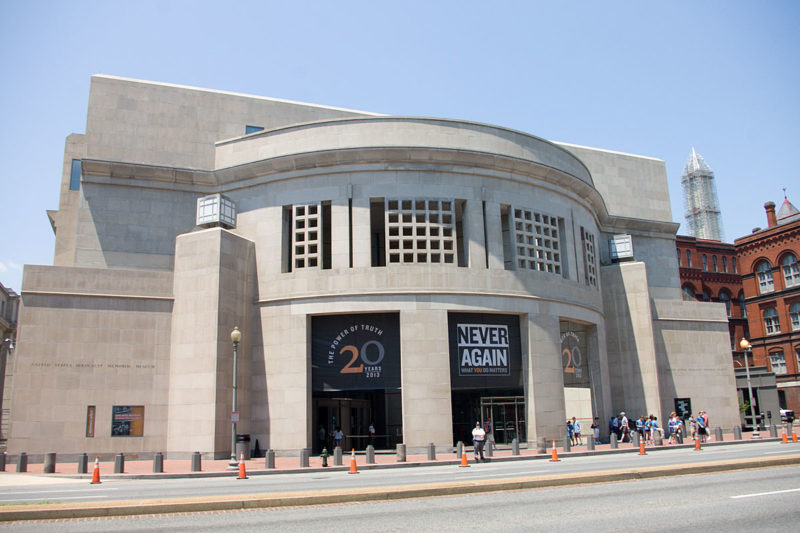Rogers looks to assure Jewish voters that Arab, Muslim outreach won’t compromise support for Israel
The Republican Senate candidate in Michigan made his closing pitch to the potentially decisive voting bloc at a Republican Jewish Coalition event

Marc Rod
RJC chairman Norm Coleman, former Rep. Mike Rogers (R-MI) and Sen. Lindsey Graham (R-SC)
BLOOMFIELD HILLS, Mich. — Speaking to Jewish voters in Michigan on Monday evening, former Rep. Mike Rogers (R-MI), the Republican Senate candidate in Michigan, made his closing pitch to the potentially decisive voting bloc, and sought to assure attendees that his outreach to Michigan’s sizable Muslim and Arab population doesn’t mean he’s compromising his support for Israel.
“We’re trying to do outreach in the Muslim community, but I also tell them where I’m at,” Rogers said during a Republican Jewish Coalition event on Monday evening in the Detroit suburbs. “I never walk away from where I’m at on Israel, and let me tell you, the first 30 minutes are always a little bumpy.”
But Rogers said that Muslim voters respect and support him for other policies even if there are intractable differences on Israel. And he said he thinks his frankness about Israel policy differences is winning him respect and support.
Rogers said that he has drawn “some very bright lines around” his support for Israel, something he alleged separates him from his opponent, Rep. Elissa Slotkin (D-MI), whom he accused of shifting positions based on which constituency she is courting.
Sen. Lindsey Graham (R-SC), who spoke on a panel with Rogers and RJC Chairman Norm Coleman, a former Republican senator, added that he thinks that consistent support for Israel and opposition to Iran are helping Rogers and former President Donald Trump among Muslim voters — mirroring how Arab leaders in the Middle East responded to Trump’s support for Israel by seeking normalization.
Rogers, the former chairman of the House Intelligence Committee and a former FBI agent, said that the current multi-front assault against Israel is “the existential threat that we all wondered about for many, many years.”
He took a swipe at Slotkin’s support for the Iran nuclear deal, claiming the Obama administration had dismantled long-gestating operations and programs that could have undermined Iran’s nuclear program out of fear of disrupting negotiations.
“I was aghast,” Rogers said, alluding to still-classified programs. “I’ve never seen anything like it.”
He said the Biden administration has continued in that model, allowing Iran to take in billions in oil revenue and pass it on to its proxies, transforming them from disorganized militias into organized military units with significant weapons capabilities.
Rogers further warned that bad actors are using the internet and social media to micro-target anti-Israel propaganda especially to uninformed college students.
And Rogers highlighted the ties among the U.S.’ biggest global adversaries, Iran, Russia and China. He warned that the U.S. is facing down a dangerous situation globally — it is not meeting military recruiting goals and, he said, could be forced to institute a draft “in the very near future.”
Graham, comparing the current moment to the one leading into World War II, suggested that war wouldn’t have happened at the time if the RJC had existed in the early 20th century to push back on antisemitism in an organized and consistent manner.
Referencing Senate Majority Leader Chuck Schumer’s (D-NY) frequent comments that his last name translates to “guardian” in Hebrew, Graham said that he has taken on the responsibility to “watch Schumer,” and vowed that a Senate GOP majority would take a more aggressive approach to campus antisemitism and Israel.
Graham also promised to lead the way in a Republican Senate to increasing annual U.S. aid to Israel.
He also discussed the need for Arab-led deradicalization efforts in Gaza and reforms of the Palestinian Authority in order to reach a long-term peaceful settlement between Israel and the Palestinians and wider regional peace.
He said that bringing peace will ultimately require Trump in office wielding a strong hand against Iran and its proxies.
The event also featured remarks from Rep. Lisa McClain (R-MI), who said that Israel’s security and combating antisemitism on campuses requires a Republican presidency and a GOP-controlled Congress, RJC CEO Matt Brooks and RJC board member Bobby Schostak.
Brooks described next week’s election as the most important for the Jewish community since the 1930s or ‘40s. He emphasized that there are undecided Jewish voters that RJC activists can reach and “give permission … that it’s OK to vote Republican” — in many cases for the first time.
Many audience members were longtime Republican voters.
Rogers also highlighted major themes of his campaign outside of specifically Jewish issues such as fighting inflation, protecting automobile manufacturing jobs, strong border security, increasing literacy rates and supporting the police.












































































